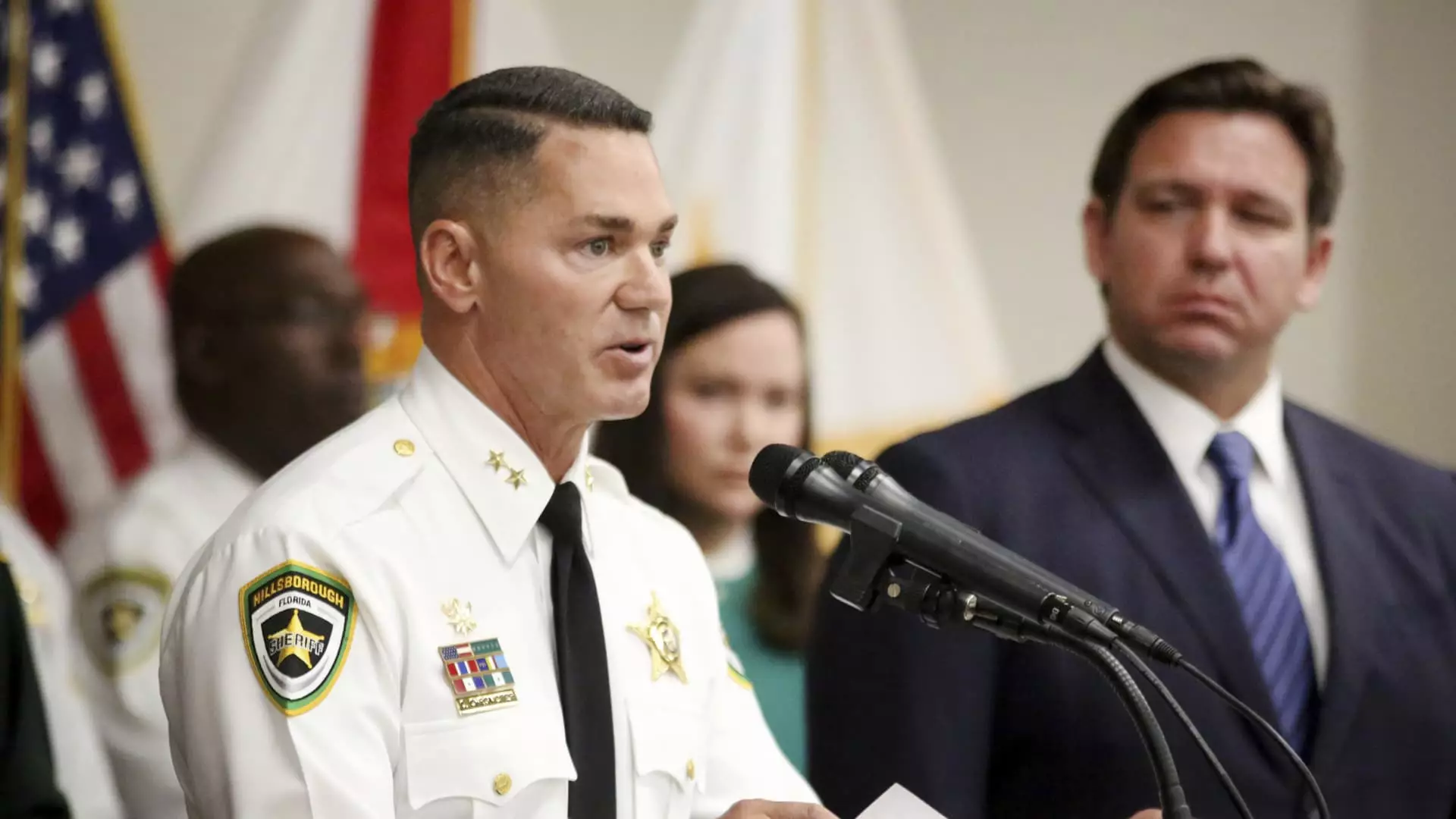In a political landscape characterized by rapid changes and intense scrutiny, the recent decision by Chad Chronister to withdraw from consideration for the role of administrator of the Drug Enforcement Administration (DEA) caught many observers off guard. Nominated by President-elect Donald Trump, Chronister’s departure just days after the announcement reveals not only his commitment to local responsibilities but also the complexities of the political appointment process. This incident invites deeper reflection on the intersection of state and federal roles, public perception, and the inherent challenges faced by those nominated to high-profile positions in government.
Chronister, who has served as the sheriff of Hillsborough County, Florida, for several years, was regarded by some as a strong candidate for the DEA position. Trump’s selection of Chronister suggested a strategic focus on tackling drug trafficking issues such as the flow of fentanyl across the Southern border. In Trump’s own words, Chronister was expected to collaborate with the Attorney General to “SAVE LIVES” and combat illegal drugs. Interestingly, Chronister expressed initial gratitude for the nomination, suggesting a fervent desire to serve at the national level. However, the rapid shift in his stance prompts questions about the factors influencing his decision.
Chronister cited his ongoing commitments to the residents of Hillsborough County as a primary reason for his withdrawal. Balancing local responsibilities with the challenges of a role that demands national engagement can often be daunting. The role of DEA administrator is not only critical but also fraught with public interests, controversies, and expectations. Furthermore, Chronister’s return to local duties aligns with a growing trend among public servants who prioritize community needs over potentially contentious national positions. This scenario underscores the reality that high-stakes political appointments can invoke not only career aspirations but also ethical and personal considerations.
Interestingly, Chronister’s nomination was not universally embraced, particularly among some Republican circles. Specific criticism arose from factions within the party, pointing towards his controversial decision during the pandemic to enforce gatherings restrictions, which included the arrest of a local pastor for violating pandemic-related regulations. This incident has reverberated through the political discourse, suggesting that past actions can significantly influence public and political support during a nomination process. Chronister’s experience illustrates the precarious nature of public service where previous decisions can haunt nominees, shaping their viability for future roles and altering the dynamics of support from party members.
Chronister’s unexpected exit reiterates the challenging dynamics of being a political appointee. His withdrawal adds to the small but notable list of Trump appointees who have opted out of consideration for various posts, reflecting deeper complexities within the administration. Each withdrawal ebbs and flows through a larger narrative about the disconnection between the expectations of political figures and the realities they face, often leading to early exits from pivotal roles.
The implications extend beyond the individual; they serve as a window into the administration’s hiring practices, the vetting process, and the mounting pressures that come with tackling critical issues. In a country deeply divided by political sentiments, candidates will need to navigate not just qualifications but also public opinion, past actions, and the contentious political environment.
Chad Chronister’s decision to step back from the nomination for the DEA speaks volumes about the complexities of leadership in a politically charged atmosphere. His emphasis on local commitments and the scrutiny surrounding his past actions underscore the intricate balancing act faced by public servants. As each nominated individual grapples with the responsibilities of office and the pressure of public opinion, one must contemplate how such withdrawals affect the broader narrative of governance and accountability. Ultimately, Chronister’s story serves as a reminder that public service requires not only skill and dedication but also the foresight to evaluate when to step back for the greater good.


Leave a Reply